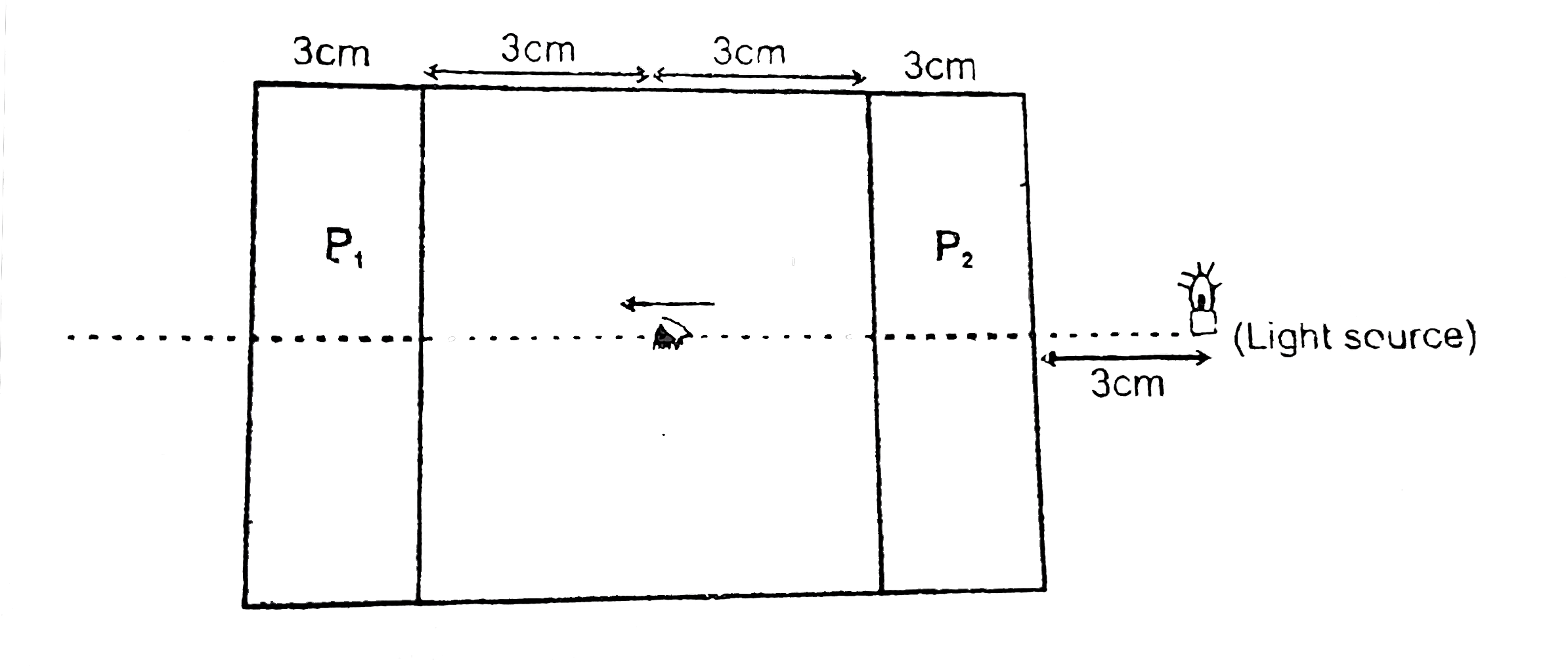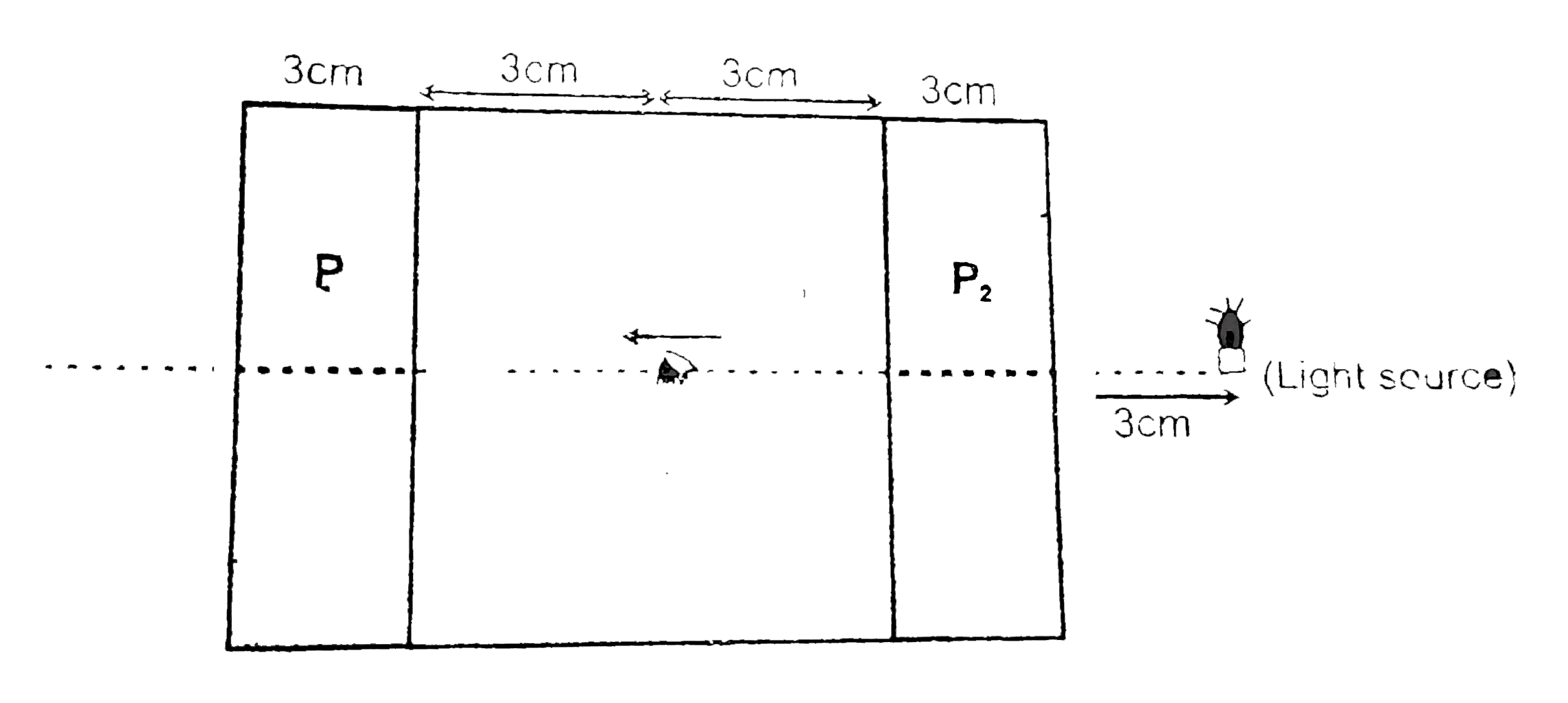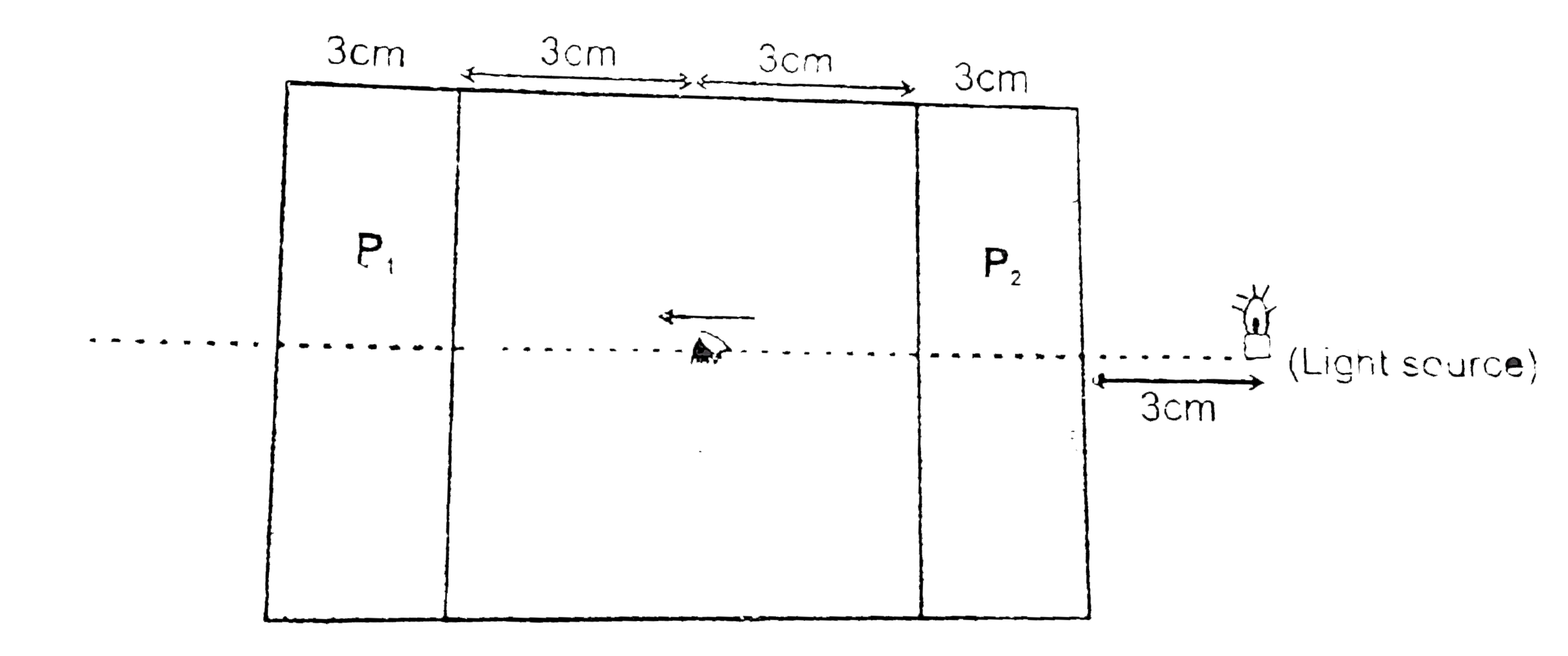There is an insect a cabin eying towards thick glass plate P1, Insect sees the images of light source acrss the glass plate P1 outside tha chain. Cabin is made of thick glass plates of refractive index μ=32 and thickness 3cm. Insect is eying from the middle of the cabin as shown in figure. (glass plates are partially reflective and consider only paraxial rays)

Number of image seen by insect?
2
4
8
∞
The correct Answer is:D
Due to multiple reflections infinite image will be formed.
Topper's Solved these Questions
- DAILY PRACTICE PROBLEMBOOK - RESONANCECHAPTER - DAILY PRACTICE PROBLEMEXERCISE - DPP No.13
20 Videos
- DAILY PRACTICE PROBLEMBOOK - RESONANCECHAPTER - DAILY PRACTICE PROBLEMEXERCISE - DPP No.14
9 Videos
- DAILY PRACTICE PROBLEMBOOK - RESONANCECHAPTER - DAILY PRACTICE PROBLEMEXERCISE - DPP No.11
20 Videos
- CURRENT ELECTRICITYBOOK - RESONANCECHAPTER - CURRENT ELECTRICITYEXERCISE - High Level Problems (HIP)
21 Videos
- ELECTRO MAGNETIC WAVESBOOK - RESONANCECHAPTER - ELECTRO MAGNETIC WAVESEXERCISE - Exercise 3
27 Videos
Similar Questions
A ray of light falls on a glass plate of refractive index μ=1.5.
What is the angle of incidence of the ray if the angle between the reflected and
refracted rays is 90∘?
View SolutionA ray of light is incident on the surface of a glass plate of refractive index 1.6 at polarzing angle. Calculate the angles of reflection and refraction.
View Solution
Knowledge Check
There is an insect a cabin eying towards thick glass plate P1, Insect sees the images of light source acrss the glass plate P1 outside tha chain. Cabin is made of thick glass plates of refractive index μ=32 and thickness 3cm. Insect is eying from the middle of the cabin as shown in figure. (glass plates are partially reflective and consider only paraxial rays)

At what distance (from eye of insect) will the eye see first image?A5cmB7cmC11cmD14cmThere is an insect a cabin eying towards thick glass plate P1, Insect sees the images of light source acrss the glass plate P1 outside tha chain. Cabin is made of thick glass plates of refractive index μ=32 and thickness 3cm. Insect is eying from the middle of the cabin as shown in figure. (glass plates are partially reflective and consider only paraxial rays)

At what distance (from eye of insect) will the eye see second image ?A11cmB13cmC16.5cmD18cmIn a young 's double slit experiment, a glass plate of refractive index 1.5 and thickness 5×10−4 cm is kept in the path of one of the light rays. Then
AThere will be no shift in the interference patternBThe fringe width will increasesCThe fringe width will decreasesDThe optical path of the ray will increases by 2.5×10−4cm
If d actual thickness of a plate of refractive index μ, then decrease in its thickness due to refraction of light will be
View SolutionThe time taken by sunlight to cross a 5 mm thick glass plate (μ=3/2) is
View SolutionLight travels through a glass plate of thickness t and refractive index μ. If c is the velocity of light in vaccum, the time taken by the light to travel this thickness of glass is
View SolutionA ray of unpolarised light is incident on a glass plate of refractive index 1.54 at polarising angle, then angle of refraction is :
View SolutionLight travels through a glass plate of thickness t and refractive index μ. If c is the speed of light in vacuum, the time taken by light to travel this thickness of glass is
View Solution
